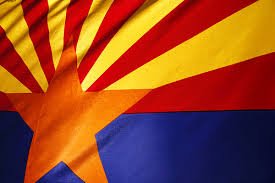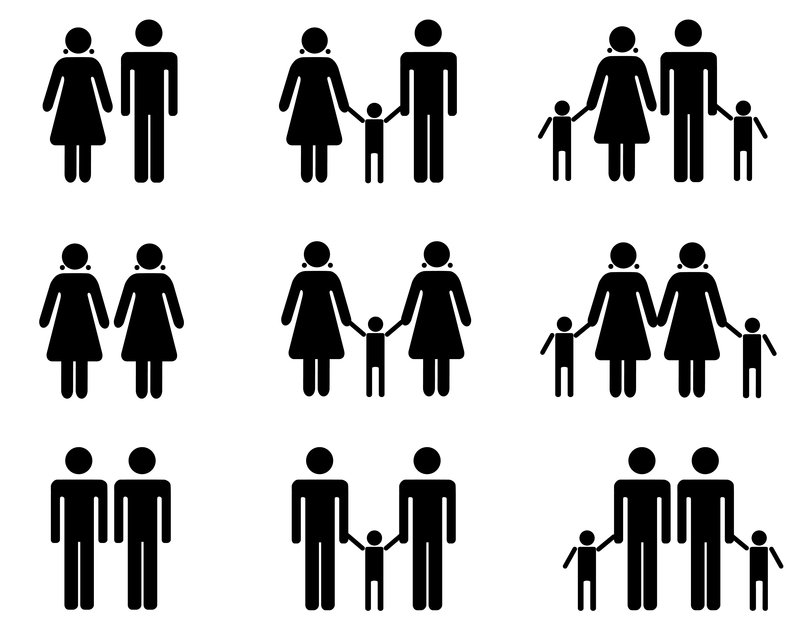 [dc]A[/dc]rizona bill SB 1062 is on Governor Jan Brewer’s desk where she is expected to sign it, veto it, or ignore it and let it become law by default by next Saturday. This bill modifies Arizona’s 1999 Religious Freedom Restoration Act (RFRA) to permit business owners to deny service to gay customers, or potentially members of any other group, so long as they are doing it because of the religious beliefs of the owners.
[dc]A[/dc]rizona bill SB 1062 is on Governor Jan Brewer’s desk where she is expected to sign it, veto it, or ignore it and let it become law by default by next Saturday. This bill modifies Arizona’s 1999 Religious Freedom Restoration Act (RFRA) to permit business owners to deny service to gay customers, or potentially members of any other group, so long as they are doing it because of the religious beliefs of the owners.
SB 1062 is Unnecessary
Although those promoting SB 1062 have claimed that the legislation is designed to solve a problem, there are no “poster child” cases in Arizona where a business owner has been compelled to act against their religious beliefs, and has not been protected by the existing RFRA.
SB 1062 would defend not only individuals (who are currently protected under Arizona’s RFRA statute) or churches (that are already protected by the First Amendment) but the bill protects any Arizona “individual, association, partnership, corporation, church, assembly or institution or other business organization.” The government would not have to be a party in the case. (Note: Whether a corporation can have its own religious beliefs is about to be decided by the U.S. Supreme Court in the Hobby Lobby and Conestoga Woodcases set for hearing in March.)
While advocates for SB 1062 point out that most business owners would not want to deny services to gay people, it is much more likely that we would see that actions involving employment and other forms of discrimination would be protected.
The way SB 1062 would work is that if a “person” under the broad definition of the bill was charged with discrimination, the person who felt that their religious freedom was violated would have to show three things: “1. That the person’s action or refusal to act is motivated by a religious belief. 2. That the person’s religious belief is sincerely held. 3. That the state action substantially burdens the exercise of the person’s religious beliefs.”
The only way that the person (or corporation or other protected group) would be forced to act against their beliefs would be if there was a compelling governmental interest and the least restrictive means of furthering that interest were used.
Arizona Gives Businesses an Excuse to Discriminate on the Basis of Religion or Fail to Accommodate
It makes sense that individual people might have a small right to refuse service that violates individual conscience, but when this is expanded to include corporations it would seem to open an entirely new arena in jurisprudence. For instance, it is very conceivable that a conservative Christian owner of a secular for-profit business might refuse to hire a Muslim or an atheist and seek protection from the legal consequences of this refusal under SB 1062.
While several states have laws that protect gays and lesbians, Arizona does not, and the Federal government does not view sexual orientation as a protected class. Therefore, Federal law would not preempt Arizona’s law because the Title VII of the Civil Rights Act of 1964 only protects people from discrimination based on race, color, religion, gender, sex, or national origin.
As an advocate for the Workplace Religious Freedom Act (WRFA), I’m concerned about any attempt to weaken the responsibility that secular employers with a religious bent have to make reasonable attempts to accommodate the religious beliefs of employees. Under current Federal law, in Hardison v. TWA, 432 U.S. 63 (1977) – the employer only has to demonstrate that it will cost them something, a “de minimis cost” in order to refuse to accommodate the religious practices of employees. This has made it very difficult for Seventh-day Adventist and others who require a Sabbath accommodation, or those who wear a particular religious garb, in states where they are not protected by state-level WRFA laws.
Coupled with the weak status of Federal protections against religious discrimination, Arizona’s SB 1062 would give businesses a license to deny religious accommodation if it somehow comes into conflict with a religious belief of the “corporation.”
SB 1062 is completely unnecessary.
Holding: Religious liberty protections under RFRA apply to closely held for-profit corporations.
